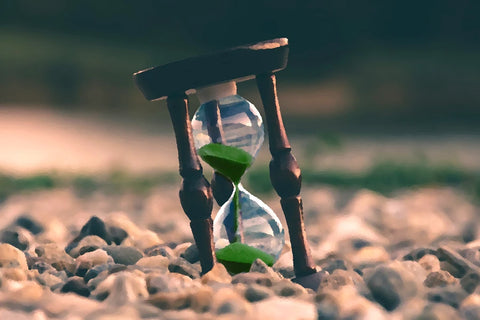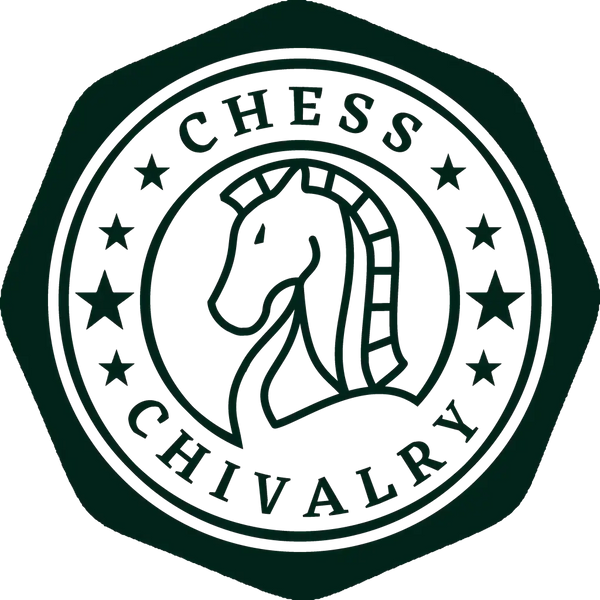
Chess & Strategy: The Psychology of Chess
Share
The world of chess is not just a complex web of rules and tactical chess moves, but also contains a fascinating psychological dimension. The so-called chess psychology is often overshadowed by the many methodological aspects of chess and is therefore not consciously included in training by many chess players. However, it is a decisive factor for the performance and success of players at all levels, as it offers important, if not the most important, starting points for self-reflection.
From the meticulous preparation of a chess game to the conscious processing of defeats, from concentration during a match to the skilful exploitation of an opponent's psychological weaknesses - the subject area of psychology is wide-ranging and of great importance not only in chess, but also in other sports.
In this blog post, I would like to take a closer look at some of the mental aspects of chess and start by providing a basic understanding of this topic. I will also provide specific tips on how to optimise a playing style through an improved mental approach.
Mental Preparation for a Game of Chess
Mental preparation is a key factor for success in a game of chess. Before a player even makes his first move on the board, it is important that he prepares himself both physically and mentally for the game.
The physical preparation can also be done in chess through short stretching exercises or a movement-based warm-up to activate the body and promote blood circulation. An accompanying short walk in the fresh air can also help to clear the mind, promote oxygen supply and thus increase concentration. Many players may think such methods are silly, but such rituals can distract from nervousness, especially in tournament matches, and enable a physically balanced start into the game.

Walks and sufficient oxygen promote concentration
Strategic preparation is also crucial. Chess players should internalise their favourite openings, calculate endgame positions and sharpen their tactical skills with exercises such as chess puzzles. This not only helps to prepare for possible scenarios during the game, but also gives self-confidence and security in one's own abilities.
Another important aspect of mental preparation in chess is analysing your opponent. By analysing the opponent's style of play, memorising their preferred chess openings and studying their tactical preferences, chess players can develop counter-strategies. In this way, the opponent's weaknesses can be exploited and his strengths neutralised more easily. In particular, a counterattack, advantage or even a game won through such preparations has a highly motivating effect on one's own style of play, as it is directly linked to the feeling of happiness of a reward.
Concentration while Playing Chess
Concentration while playing chess is essential for a successful performance on the chessboard. To improve this, every player must learn to block out distractions and focus fully on the game. The ability to concentrate varies from person to person, but can always be positively influenced. In terms of local factors, creating a quiet playing environment and avoiding distracting noises are fundamental requirements for avoiding distractions. In terms of physical factors, on the other hand, a healthy diet and sufficient hydration play an important role, but calm breathing and a balanced sitting posture also help to prevent losing focus.
When all these aspects have been taken into account, there are good prerequisites for mastering the mental challenges and successfully implementing your own strategy and tactics. This is where classic training comes in, as well as experience, which provides a player with a guideline over time, e.g. for evaluating chess positions or weighing up different decision alternatives.
Time Management in a Game of Chess
Every chess player has two opponents in a game of chess: on the one hand his opponent and on the other hand time. And while the opponent's playing style and skills change with every new game, the challenge of time management always remains the same. The aim is to use time as efficiently as possible in order to play the most effective chess moves with the least amount of time. But what measures can be taken to pursue this goal?

The time pressure in chess is the chess player's fight against himself
A good starting point for assessing the time intensity of chess is provided by a quote from the Austrian chess player Rudolph Spielmann:
"Play the opening like a book, the middle game like a magician, and the endgame like a machine."
Although this quote does not reveal any great secrets, it does hint at how a chess player can save time. By learning and rehearsing chess openings in detail, they can be played from memory and consequently save a lot of time when executing the first chess moves. This almost automated playing of chess openings also explains the very fast chess moves that can be observed at the beginning of a chess game in tournaments or reports. The middle game, on the other hand, requires a mixture of talent, training and experience. It is the core of a chess game, characterised by a high level of complexity and therefore places high demands on the concentration and decision-making of both players. Through intensive training, the development of the ability to recognise mating patterns and a great deal of discipline, a chess player can increase the speed of his moves in the middlegame and at the same time put his opponent under pressure. The same applies to the endgame, except that it offers less room for creative moves and mistakes. Here the chess player is required to internalise the different types of endgames and execute them precisely. In combination with time pressure, the endgame represents the greatest challenge, which can only be mastered with intensive training. However, there are many ways to practise and chess puzzles in particular are ideal for endgame positions.
Learning from Defeats
Dealing with defeats is an unavoidable part of the game of chess and an important topic in chess psychology. How a chess player deals with defeats has a significant influence on the development of his mental strength and his performance on the chessboard.
It is important to accept that defeats in chess are inevitable and part of the learning process. Defeat may even be the best teacher, as it provides insight into both the opponent's strength and the mistakes that need to be avoided in order to overcome the same hurdle.
Dealing effectively with defeat also requires the ability to control your own emotions. It's natural to feel frustrated or disappointed when you lose, but it's important not to let these negative emotions get the better of you. Especially in tournaments where several chess games are played, an early loss could otherwise determine the outcome of the entire contest.
Even in a lost game, there are many chess moves that you have executed correctly and game situations from which you can learn. It is therefore extremely important that every lost chess game is documented and analysed afterwards. There are many chess portals that offer extensive analysis tools for recognising and evaluating your own mistakes and pointing out alternative chess moves that would have been more promising. By internalising this chess position and game situation, the player is optimally prepared should such a situation - or at least a similar one - occur again.
Set Goals
Only by setting goals a chess player can visualise his success and create a basis for his future motivation. To do this, it is important that these goals are precisely formulated and that their achievement can be measured at any time. However, this is not always easy in chess. Of course, there are goals that fulfil these requirements, such as "I want to increase my ELO rating by 200 points in the next three months". But there are also many goals that are difficult or even impossible to measure, as they relate to very complex circumstances. A good example of this is "I would like to have internalised the Spanish Opening in the next three months". This goal is certainly advisable and worth striving for, but due to the complexity and difficulty of defining it in a wide variety of games, it is virtually impossible to measure. Here, the player is required to progress according to subjective standards.
In general, every chess player should play regularly and a lot to assess their goal achievement, but above all they should also reflect on themselves and ask the question of whether they are satisfied with their own performance. Although competition with other players is an important criterion for this, the fun of playing chess should be the top priority and should not be clouded by the overzealous pursuit of success.
Conclusion
As in many other sports, psychology is an important, if not the most important aspect of a chess player's success. Although talent or hard work are also decisive factors, without appropriate self-reflection or a constructive way of dealing with victories and defeats, personal progress can come to a standstill. The motivation to develop oneself further and not give up should be the driving force behind every chess player. And thanks to the findings of chess psychology, every player has the opportunity to consciously and purposefully work on themselves.
I hope that my chess psychology preparation has helped you to find new approaches to improving your chess skills. If you have any questions, please feel free to contact me at any time via my contact form.
If you also play chess on the chessboard, have a look at my range of Staunton chess pieces and chessboards. I have a wide selection of handcrafted products in tournament format.
I hope you enjoy the game, have lots of success and make rapid progress in your learning.
See you soon.
Stefan
